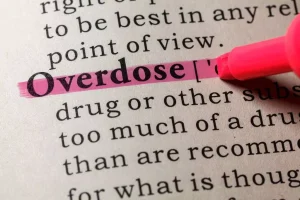
Private owners usually own these homes, but charities and businesses may also own sober living houses. If you live in a recovery house, you may either have your own room or share one with a roommate. Most of the time, residents share communal spaces, like kitchens, living rooms, and backyards. The cost varies by the type of sober-living environment and length of stay. Some sober-living homes have a base rate with additional costs for added services. When you’re looking for a sober recovery home, be sure to ask what’s included in the monthly rate and what is extra.
Halfway Houses
If you’re having a hard time adjusting to a sober life, reach out to a mental health professional who specializes in addiction and substance use. A sober living house (SLH) is a residence for people recovering from substance use disorder. Sober living homes are meant to be safe, supportive environments that emphasize the importance of building a community and camaraderie with others.

What Is a Halfway House?
Sober living plays a pivotal role in this process, offering a structured yet flexible environment where you can forge a path toward a substance-free life. Understanding its importance could be the key to not just achieving sobriety but maintaining it in the long run. Avenues NYC sober livings are comfortable, casual, safe environments where residents can forget about the stressors of the outside world and focus on their own growth. Tucked away on quiet side streets in Manhattan’s TriBeCa neighborhood, Avenues NYC’s TriBeCa sober living spaces offer a serene escape from the temptations of city life – without sacrificing the comforts of home. An often-overlooked aspect of transitioning is the importance of building a strong support network. Sober living homes encourage connections with peers who share your commitment to recovery.
- Certain age brackets can experience specific challenges when recovering from addiction.
- While meeting attendance and household duties may be required, there isn’t regimented treatment programming present in the home.
- Most of them view their homes as a necessary component of a successful recovery.
- The concept of sober living homes might seem simple, but the impact they can have on your recovery process is profound.
Family and Children’s Programs
- As such, sober living houses serve as a space to transition into a life without addiction, developing tools and community while getting used to the demands of daily life.
- While they are both residences designed to support folks in maintaining sobriety and transitioning back into society, there are some key differences.
- It’s a safe space where you can reinforce the coping skills needed to navigate life without substances.
- An often-overlooked aspect of transitioning is the importance of building a strong support network.
- In your journey to sobriety, understanding the framework within sober living homes is crucial.
- How long you stay depends on the sober-living facility and your progress in recovery.
Since sober living typically follows addiction treatment, getting a referral from the treatment provider is recommended. Other referral sources may include the criminal justice system, a mental health professional, Twelve Step meeting participants, or friends and family. Whatever the source of the referral, take a tour of the facility and talk to the people living there to decide if it’s the right fit for you. Sober living homes are not for everybody; some people may need to go through detox or rehab before they can successfully live in a sober environment. However, these homes provide a supportive place to transition from an addictive lifestyle to one of sobriety and responsibility. People who have gotten sober and want to stay that way should consider moving into a halfway house or other group home dedicated to sober living.

Certain age brackets can experience specific challenges when recovering from addiction. Prices vary depending on location, living arrangements, and program offerings. Typically, the cost is about the same as living in a modest apartment or home. Typically, as long as you follow the rules, you may live in the home for as long as you want.
Questions about treatment options?
what is a sober living houses are often recommended for folks finishing up a drug rehabilitation program.Leaving the structure of a treatment program can be jarring, sometimes triggering a relapse. As such, sober living houses serve as a space to transition into a life without addiction, developing tools and community while getting used to the demands of daily life. Embracing the path of sober living is a transformative step towards reclaiming your life and building a future grounded in health and fulfillment. By choosing to reside in a sober living home, you’re not just finding a place to stay; you’re joining a community committed to mutual support and recovery. The journey ahead may have its challenges, but with the structure, accountability, and camaraderie found in these homes, you’re never alone. You’ll gain not only a safe environment for your recovery but also invaluable life skills and relationships that nurture your growth and resilience.
- Embarking on the journey to sobriety isn’t a solo trek; it’s a path best navigated with support and structure.
- Sober living is a crucial step in this journey, offering a bridge between an inpatient facility and the real world.
- They also often come with additional mental health, medical, recovery or educational services that help people get accustomed to their new lives.
- If you want to find the best sober living home near you, it’s important to carefully consider different options as each home is structured differently and usually has its own house rules.
Additionally, https://ecosoberhouse.com/ rules may include a curfew, helping around the house, and attending group meetings. The supportive environment and continuous access to recovery resources significantly lower the risk of relapse. Regular drug testing and the community’s encouragement provide extra layers of accountability, further protecting your sobriety.



